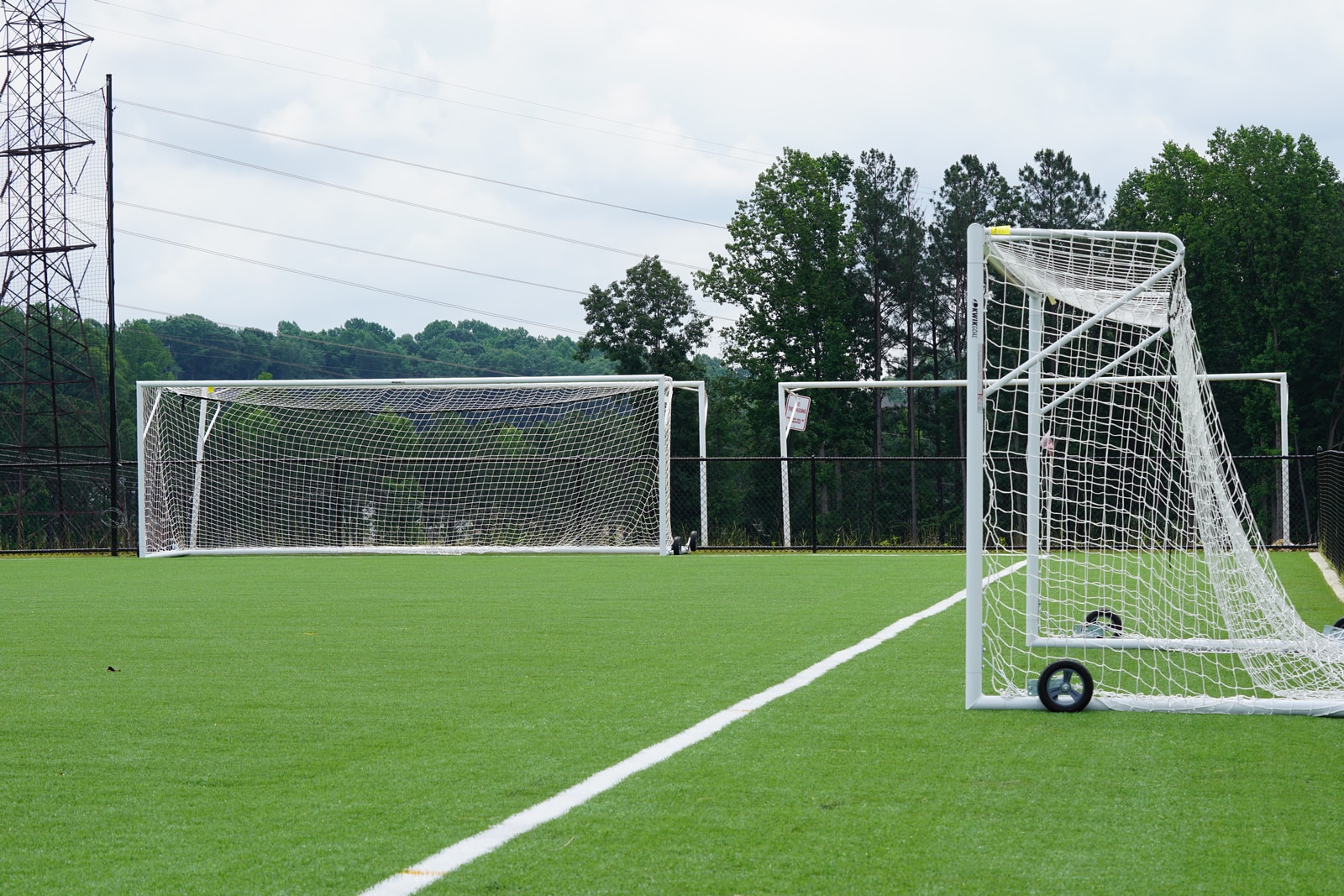On April 1, 2015, FIFA introduced its new Regulations on Working with Intermediaries and stopped regulating the licensing of football agents.1FIFA Regulations on Working with Intermediaries, April 2015 https://resources.fifa.com/image/upload/regulations-on-working-with-intermediaries-2367763.pdf?cloudid=cr6dquxm2adupv8q3ply In its place, FIFA’s member associations were tasked with the implementation of a registration system for agents representing players and clubs.2Id. at 4. With the new approach, FIFA went from regulating access to the agent profession to shifting its focus to a “framework for tighter control and supervision of the transactions relating to transfer of football players.”3Working with Intermediaries – reform of FIFA’s players’ agents system, Background Information, April 2015, p. 2. https://img.fifa.com/image/upload/tbdbujljue64j8v1aog2.pdf
In response, the United States Soccer Federation (hereinafter “the USSF”) implemented an agent registration system adopting the minimum standards and requirements established in FIFA’s Regulations on Working with Intermediaries. The USF specified the procedures and requirements to become a USSF registered agent. A natural or legal person can seek registration as an agent under two circumstances. An applicant can choose to become a pre-registered agent, prior to representing a player and/or club; or, can seek full registration if the agent is representing a player or club during the execution of a player’s employment contract, or transfer agreement. Interestingly, under the USSF’s registration system, an agent is not considered to be registered unless, and until, the agent submits a representation contract between the agent and a player, and/or club; and, the agent is actually involved in the execution of an employment contract, or a transfer agreement.4Id. at 1-2.
The applicant must submit an Intermediary Registration Form and disclose personal information, business information (if a legal entity), criminal history information, and any potential conflicts of interest, in compliance with Article 8 of the Regulations on Working with Intermediaries. The USSF then conducts a complete background check on the applicants, including but not limited to the discovery of any criminal convictions for a financial or violent crime, as required by Article 4 of the Regulations on Working with Intermediaries. The USSF does not allow individuals with a criminal conviction for financial or violent crimes to register as agents. Those who have been registered as agents have an obligation to notify the USSF if at any time they are convicted of a financial or violent crime. Along with the registration form, the prospective agent must submit a registration fee of $400.00 to the USSF. Thereafter, the fee for renewing the agent’s registration with the USSF is $50.00 each year. As required by Annexes 1 and 2 in FIFA’s regulations, a declaration signed by the agent must be submitted to the USSF during the execution of an employment contract or a transfer agreement.5 Id. at 1-10.
The USSF’s implementation of just the minimum standards and requirements to its agent registration system brings forth certain pitfalls to its agents and football environment. Though an agent is required to possess an impeccable reputation, the USSF does not require its registered agents to possess a specific education, knowledge and expertise to handle a player’s contract or a transfer agreement. Currently, there is no agent certification program for football agents representing players at any of the professional and/or semi-professional leagues that are members of the USSF. The handling of a player’s contract with a club or a transfer agreement embodies contract issues, employment issues and intellectual property issues, just to name a few. Thus, football agents should possess the knowledge and proficiency to handle the aforementioned issues. Conversely, agents in other professional sports leagues in the United States are required to go through an agent certification program. For example, the National Basketball Association (NBA)6Becoming an NBPA Certified Agent
https://nbpa.com/agents/becoming-an-agent and the National Football League (NFL)7Becoming an Agent
https://nflpa.com/agents/how-to-become-an-agent require their agents to possess a minimum educational degree, an undergraduate and post-graduate degree (Master of Law) in the NFL’s case, to pass an examination, attend agent seminars and maintain liability insurance. Without a doubt, the USSF’s lack of a football agent certification program works to the detriment of the player who, one can argue, is in a vulnerable position.
Other difficulties in the world of football agents in the United States are found in the absence of an agent’s association. There is no representative body of USSF agents capable of acting as a liaison with the player’s unin and/or the USSF, or that can promote the continuing professional development of the agents. For example, in the United Kingdom, agents created the Association of Football Agents (AFA), and globally, the Professional Football Agents Association (PROFAA) has been created. Both organizations seek the collective interest of the agents and players, and the continuing development and high standards of professionalism among its agent members. The lack of a football agents’ association in the United States has fostered a football industry where there isn’t a “voice” that can further the interests of football agents within US football. In April 2015, there were approximately 36 USSF-registered agents.8USSF Report of Registered Intermediaries 2015-16 https://cdn.ussoccer.com/-/media/project/ussf/migrated/files/federation-services/intermediaries/2015-16-properly-pre-registered-intermediaries-170307.ashx?la=en-us&rev=1ffffcc3b0a248039b4d3a4cca066101&hash=A8EF31A28AA4A761BE3955181A519EC7
Five years later, as of March 2020, the number of USSF-registered agents has almost quadrupled to 137 agents.9USSF Report of Registered Intermediaries 2019-20
https://cdn.ussoccer.com/-/media/project/ussf/governance/2020/fed-services/report-of-registered-intermediaries- 1920.ashx?la=en-us&rev=b6eca43f53df47719d8e17f8de967409&hash=D7EB20B536B352852BB972B91381A258 The increasing number of unorganized USSF-registered agents has only made it more difficult to promote, organize and require a high standard of professionalism among the agents, let alone a way for USSF agents to enact agent regulations and to fight and prevent corruption and criminal activity.
Football agent education is pivotal not only among USSF agents but around the world. But achieving and demanding a high standard of professionalism among football agents is not an easy task and will require the full support, involvement and consent of at least the majority of agents. Thus, cooperation and unity among all agents are key. This will be the only way to achieve and maintain transparency, and promote and enforce a proficient, ethical and legal way of doing business in the football agent industry.
- 1FIFA Regulations on Working with Intermediaries, April 2015 https://resources.fifa.com/image/upload/regulations-on-working-with-intermediaries-2367763.pdf?cloudid=cr6dquxm2adupv8q3ply
- 2Id. at 4.
- 3Working with Intermediaries – reform of FIFA’s players’ agents system, Background Information, April 2015, p. 2. https://img.fifa.com/image/upload/tbdbujljue64j8v1aog2.pdf
- 4Id. at 1-2.
- 5Id. at 1-10.
- 6Becoming an NBPA Certified Agent
https://nbpa.com/agents/becoming-an-agent - 7Becoming an Agent
https://nflpa.com/agents/how-to-become-an-agent - 8USSF Report of Registered Intermediaries 2015-16 https://cdn.ussoccer.com/-/media/project/ussf/migrated/files/federation-services/intermediaries/2015-16-properly-pre-registered-intermediaries-170307.ashx?la=en-us&rev=1ffffcc3b0a248039b4d3a4cca066101&hash=A8EF31A28AA4A761BE3955181A519EC7
- 9USSF Report of Registered Intermediaries 2019-20
https://cdn.ussoccer.com/-/media/project/ussf/governance/2020/fed-services/report-of-registered-intermediaries- 1920.ashx?la=en-us&rev=b6eca43f53df47719d8e17f8de967409&hash=D7EB20B536B352852BB972B91381A258





